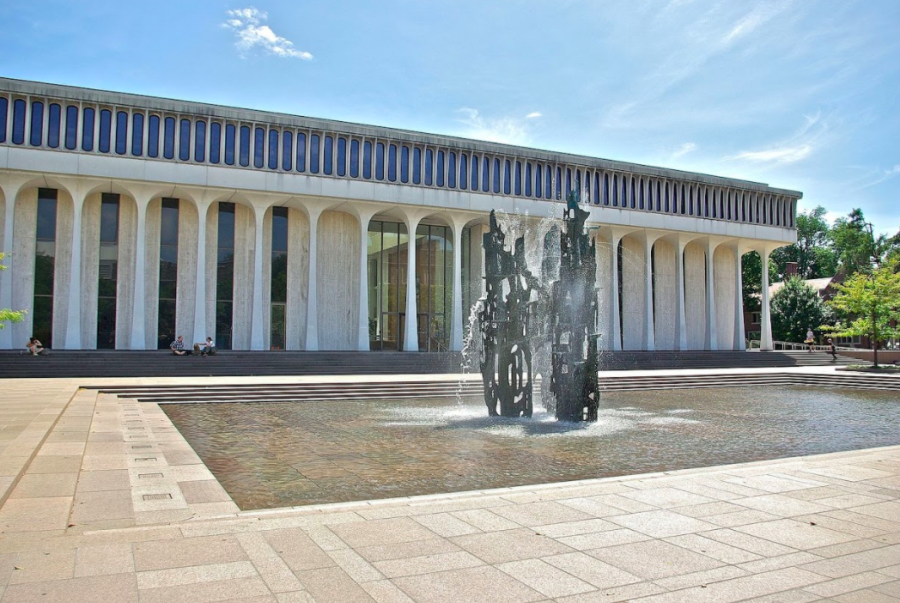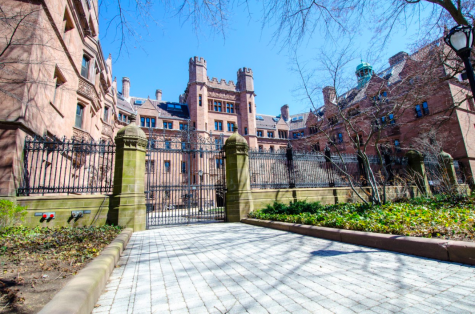Let’s Not Forget What it Means to Honor Someone
In the wake of the killings of Breonna Taylor, Ahmaud Arbery, George Floyd, and Rayshard Brooks, protesters have placed a heightened emphasis on symbolism. The exigent demand is apparent: remove the names and statues of historical figures who perpetuated racism from public locations. But now, the demands — in addition to the illicit behaviors — have gone too far. Princeton removed Woodrow Wilson’s name from the School of Public and International Affairs and a residential college. In Portland, protesters took down a statue of Thomas Jefferson. A panel from the District of Columbia wishes to remove Benjamin Franklin’s name from a D.C property due to his “disqualifying history.”
Now, I don’t think that removing these names is deleterious to our understanding of history; anyone can open a history book to learn more about these figures. Instead, advocates for such removals subject historical figures to unfair contemporary standards and fail to understand that memorials are meant to honor specific values and not the holistic individual.
Let’s take Princeton as an example. Christopher L. Eisgruber, the President of Princeton University, acknowledged that the controversy surrounding Wilson’s name and reputation was defined by an apparent clash between his significant contributions to world peace (notably, the League of Nations) and his segregationist policies. “Princeton honored Wilson,” Eisgruber said, “not because of, but without regard to or perhaps even in ignorance of, his racism.” He further added that Princeton is part of an America that is complicit in “allowing the persistence of systems that discriminate against Black people.”
But entitling a building after Wilson to honor his accomplishments is not equivalent to our “ignorance” of his racism — insofar as we aren’t honoring him because he was racist. We can acknowledge historical shortcomings and commemorate significant historical figures when appropriate; memorializing an individual isn’t neglecting every individual’s vices or condoning all that he did, but rather highlighting the noteworthy values and honorable characteristics that our society should emulate.
Similarly, Benjamin Franklin owned slaves throughout his life, but we should not only cease from taking down his name but continue honoring his accomplishments. His acceptance of a societal norm mustn’t overshadow his invention of both the lightning rod and the bifocal lens. Nor should it override his efforts in laying the framework of the United States through the Constitution.
But as we continue to weigh vices against virtues, we create practically impossible standards for praise. By owning slaves, framers like Thomas Jefferson and James Madison were racists by today’s standards. Still, when we remember them through the statues and the naming of different buildings, there is only one objective: to highlight the progress they made in respect to popular sovereignty, freedom of religion, and freedom of speech. We don’t think any less of those values in light of their beliefs over race.
As a thought experiment, let us assume that meat-eating is widely perceived as a societal evil in two hundred years — thus making vegetarianism the norm. Indeed, slavery was morally unacceptable to many in the past, but it was still a norm. This is equally true about eating meat. However, would it make sense for us to take down statues of Barack Obama because he liked bacon? Or what if we took down the names of philanthropist Warren Buffet from all buildings because he enjoyed eating sausage McMuffins?
There is, however, an important distinction between the historical figures I mentioned — Woodrow Wilson and Benjamin Franklin — and Confederate statues. Wilson and Franklin are significant for reasons that extend far beyond their shortcomings. Neither are well-known because they owned slaves, whereas confederate statues such as those of Robert E. Lee honor a person who gained prominence due to his fight for slavery itself.
It is this distinction that compels me to provide a solution: rather than taking down the names of Wilson and Franklin, we should put up plaques — or at least some form of explanation — to explain why a specific individual is honored. By doing so, we would avoid ambiguity that these names and statues have thus far engendered.
Societal norms shift perennially; eating meat might be the norm now, but perhaps it won’t be in the future. Slavery was clearly more standard in the past than it is now. That doesn’t mean that keeping the statues of slave owners condones slavery itself, as long as we memorialize those individuals for other significant actions. We should have kept the name of Woodrow Wilson at Princeton to appreciate his contributions toward world peace, even though he did pass racist policies. Similarly, we must keep Benjamin Franklin’s name up, despite the fact that he owned two slaves. By merely placing a plaque up in recognition of why someone is memorialized, we can focus on the primary reason we erect statues and entitle buildings after individuals in the first place: to praise universally respected qualities.










